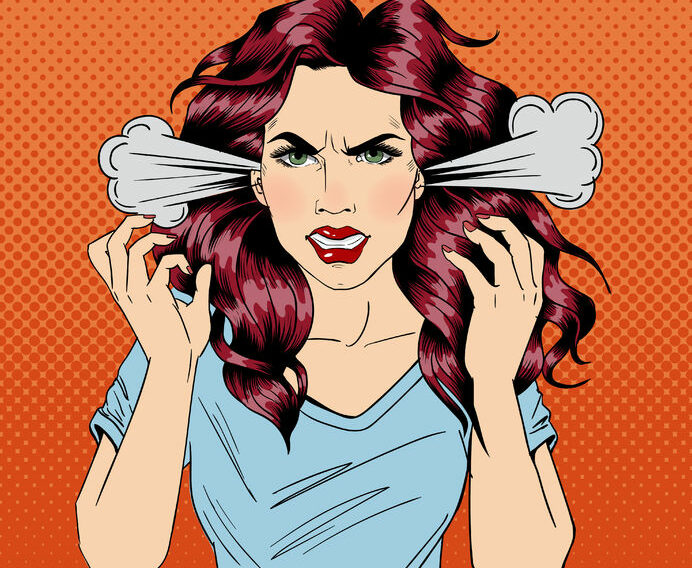Emotional Leakage

RO DBT posits that many folks are experts at inhibiting emotions, delaying gratification and generally keeping things looking quite perfect. And this is really important for keeping the world ticking along. But as we say in RO DBT, sometimes you can have “too much of a good thing.” And a consequence of superior inhibitory control is that while it may be an overlearned habit, it is not a sustainable one and can result in emotional leakage.
These leakages often appear uncharacteristic of the individual, can be in public, and can result in guilt and embarrassment after they occur. A story that I often tell my clients when explaining this concept is as follows.
Nicole: “So as a person who leans to OC, I am pretty good at keeping it together. But sometimes, that can be really tiring and I feel like I snap when something doesn’t go my way. And most of you know that I have lots of animals and as a result, spend lots of time and money at the vet. I had taken my cat in for a routine exam and it was discovered that he actually had an aggressive form of cancer. I ‘kept it together’ when the results were being delivered, but there were lots of tears when the vet left the room. And because I was crying, I needed more Kleenex. So I marched into the reception area to get another box and suddenly Dr. Little is very loudly giving a lecture of the ratio of money spent at this vet and poor quality of Kleenex. (I enact this part just as it had been delivered, as clients will not have witnessed emotional leakage on my part in class). Really, it just went on and on for what felt like forever. In the moment I felt quite righteous but afterwards I felt terrible! And a major consequence was that I was aware of imagining a desire to avoid this vet as opposed to repair the damage.”
Client X: “I can’t picture you doing that.”
Nicole: “Exactly! Neither could the vet clinic until that day J But here’s the thing folks, we can’t keep it together forever and when this happens, I am aware of imaging that people get even more ridged to try to avoid this happening again. But to help us not have emotional leakage means we got to practice our skills of openness.”
Examples that clients have shared with me include what we call high intensity leakages, such as cutting someone off aggressively in traffic for not merging correctly, berating a server for delivering the wrong order, or storming out of a meeting. They have also shared what we call low intensity leakages such as smirking at someone’s misfortune, “forgetting” to invite someone to a gathering or feigning ignorance when someone needs help. It is important to note that in assessment, high intensity signals can be interpreted as emotional under-regulation by both the client and assessor and so careful attention is paid to when, where and how often these incidents occur. Chances are, if the person is presenting for RO DBT treatment, these high intensity incidents are emotional leakage, not under-regulation. In fact, there will be a blog post soon examining when a BPD diagnosis may be reassessed based on these assumptions.
In my RO DBT skills class, I try to balance compassionate gravity of leakage (e.g. it is painful and sometimes quite serious as Dr. Laura Hamilton discusses) with irreverent playfulness (oh,oh, the OC faucet sprung a leak!). As for my life outside of class, I am doing a better job not keeping it together at all costs. What I have learned from practicing being vulnerable is that I am less likely to have to contend with emotional leakage and the tsunami it sometimes brings. And for the record, the Kleenex has improved at the vet office. I bet someone asked them with kindness.
About the author: J. Nicole Little, Ph.D., R.C.C.
Nicole is a therapist specializing in eating disorders and other conditions of overcontrol in Victoria, B.C., Canada. She has also taught for 13 years at Universities and colleges. Her passions are RO DBT and animal assisted therapy.